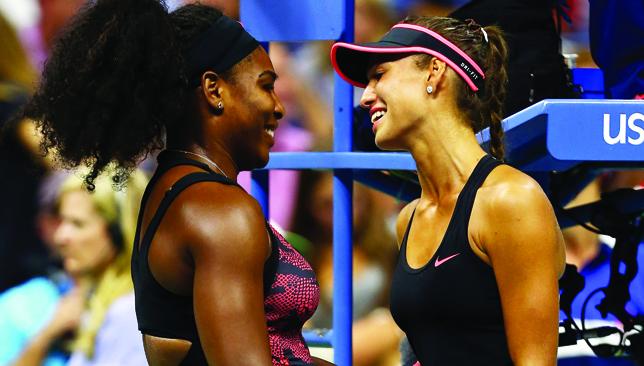
As Serena Williams embarked on what could be the most epic tournament challenge of her career on Monday, her first match against Vitalia Diatchenko was anything but.
Diatchenko showed up for their opener on Arthur Ashe Stadium nursing, what she later revealed was, an Achilles injury.
The Russian could barely move. She wasn’t using her legs on serve and managed to win just five points before retiring while trailing 0-6, 0-2.
For everyone watching and probably both players, it was half an hour of very uncomfortable viewing. Diatchenko was clearly in no shape to compete and many voiced their disdain towards her decision to take to the court to begin with.
Had the Russian pulled out prior to the match, she would have given the opportunity to a healthy lucky loser to take her place but she would have also missed out on the $39,500 paycheck a player gets for just showing up for their main draw opening round.
“What’s going on out there? Respect the sport please,” tweeted men’s No18 seed Feliciano Lopez.
His fellow Spaniard, Anabel Medina Garrigues, was also appalled by the situation as she said: “It’s incredible what is happening right now on Centre Court. I don’t understand how they can allow a player that cannot move, to compete.”
This is not the first time something like this has happened but since it was against Williams, at the US Open, Diatchenko’s painful 30 minutes could not go unnoticed.
Her retirement was one of seven witnessed on Monday although none of the other six were as controversial.
– #360view: Men’s US Open brings unpredictability
Also: Who is tennis' greatest? Federer, Nadal or Djokovic?
– INTERVIEW: Grigor Dimitrov talks ahead of the US Open
It’s a tricky situation because on one hand, the injured player is denying a lucky loser the chance to compete in the main draw.
But on the other hand, how could we expect them to pass on claiming $40,000 after they’ve worked hard to get their ranking up and earn a spot in a grand slam?
As Williams put it: “I guess if you have a sick day in regular life you still get compensated.”
Diatchenko, ranked 86 in the world, does not have the luxury of turning down that kind of money. Grand slams are her lifeline.
This year heading into the Open, she earned $136,114 in the three slams she played, compared to just $26,707 in her 11 other events. You can’t blame her for what she did.
Should slams consider compensating injured players anyway to incentivise them to pull out before the first round and give way for a lucky loser?
It’s been brought up before. Polona Hercog collected $27,200 last year for 10 minutes of first round action at the Australian Open.
John Isner, who had retired two sets into his opener that day, suggested a rule change would be welcome with the injured player getting first-round prize money while the lucky loser would fight for second-round prize money and ranking points.
Others suggest a 70-30 per cent split or something similar.
With prize money at slams growing exponentially each year, the gulf between what players make at the majors and at tour events is getting bigger and bigger.
A report on tennisabstract.com showed despite the hike in compensation at slams, the average number of first round retirements has actually been the same for the past 15 years or so.
But the fact the figure is not increasing does not mean the situation is not being abused and when it is, it is both aesthetically bad and morally questionable.
The compensation policy needs revisiting. Even if the new rule would only be required like five times a year, that's still five lucky losers getting the opportunity to play what could be a life-changing grand slam for them. If you ask me, I say it's worth it.